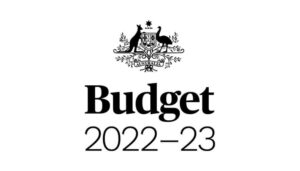
Small Business Technology Investment Boost – Draft Legislation
The Federal Government has recently released Exposure Draft Legislation for the Small Business Technology Investment Boost provides businesses with a 120% deduction for expenditure to support their digital technologies.
* Please note, that the Boost has only been released as Exposure Draft Legislation and will not be law until the relevant legislation has been passed by Parliament. We will keep you updated on the status of the proposed measures.
Who is eligible?
Businesses with an aggregated turnover of less than $50 million are eligible for the bonus deduction.
What can be claimed?
Eligible businesses can claim a bonus 20% deduction on expenditure to support digital operations. The expenditure must be incurred wholly or substantially for the purposes of a business’ digital operations or digitising the entity’s operations. This may include:
- Digital enabling items – computer and telecommunications hardware and equipment, software, systems and services that form and facilitate the use of computer networks
- Digital media and marketing – audio visual content that can be created, accessed, stored or viewed on digital devices; and
- e-commerce – supporting digitally ordered or platform enabled online transactions.
It only applies to expenditure up to $100,000 per income year (which would give the business an maximum additional $20,000 deduction per income year).
When does it apply?
It applies to expenditure incurred from 7:30pm on 29 March 2022 to 30 June 2023.
Any expenditure incurred between 29 March 2022 and 30 June 2022 will be claimed in the 2023 tax return.
What is excluded?
A bonus deduction cannot be claimed on the following costs:
- Salary and wages
- Capital works claimable under Division 43 (building depreciation)
- Financing costs
- Training and education (see the Small Business Skills and Training Boost)
- Spending associated with training stock.
The boost is not intended to cover general operating costs relating to employing staff, raising capital, the construction of the business premises and the cost of goods and services that the business sells.
Action to take
- Review all expenditure incurred from 29 March 2022 to 30 June 2022 to identify whether your business has incurred any costs eligible for the bonus deduction. Document these costs and have them ready for your 2023 tax return.
- Setup a separate expense account in your chart of accounts to track these expenses for the 2023 year (making it easier to identify and claim at year end).
- For all eligible expenditure, ensure you have appropriate invoices to support the cost. If you are using accounting software like Xero, you can attach these invoices to the relevant expense entry (making it eaiser at year end for your accountant to review the eligibility of the expense).
- Consider whether your business needs to make further investments to support their digital operations. If so, ensure these costs are incurred before 30 June 2023.
DISCLAIMER: The information in this article is general in nature and is not a substitute for professional advice. Accordingly, neither TJN Accountants nor any member or employee of TJN Accountants accepts any responsibility for any loss, however caused, as a result of reliance on this general information. We recommend that our formal advice be sought before acting in any of the areas. The article is issued as a helpful guide to clients and for their private information. Therefore it should be regarded as confidential and not be made available to any person without our consent.

Jeanette has over 20 years experience as an accountant in public practice. She is a Chartered Accountant, registered tax agent and accredited SMSF Association advisor. When she is not helping business owners grow their empires, you will likely find her out running on the trails or at the gym. Book in to see Jeanette today.




